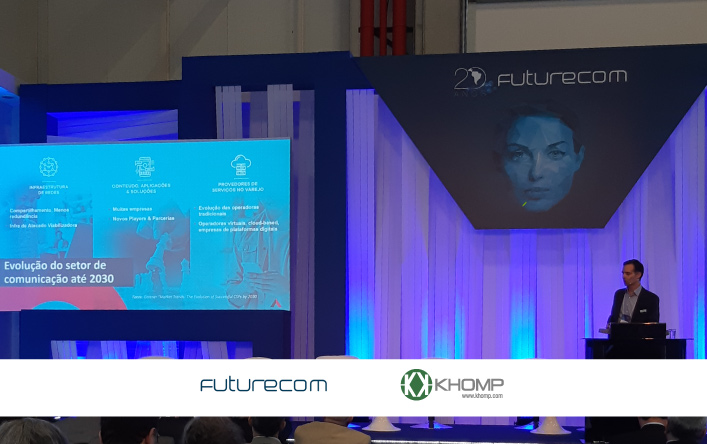Futurecom 2018 presents a provocative challenge as the agenda for its panel to those that are beginning the process of preparing their IoT networks: is your infrastructure prepared to support these applications and the volume of data generated?
To reflect on this theme, the event will bring together representatives from different sectors in order to rethink current practices related to the disposition of connectivity and the democratization of IoT.
“Brazil has already entered into its maturation curve with 4G, but, due to some of the characteristics of 5G with its higher spectrum, we will have to look for new versions for data sharing. There is no way to keep up with these innovations using traditional solutions,” explains Flávio Cardoso, general manager of American Tower.
Different points of view, but with one thing in common – partnership actions
That being the case, the panel discussion began with the main question, posed by Miriam Aquino, journalist and mediator of the debate: “Tell us the truth, is your network prepared to support IoT applications?”
Marcelo Yamamoto, director of Strategy, Marketing and the Internet of Things at Huawei, is incisive when he reminds us that the Internet of Things is, actually, a concept, not a product. “Artificial Intelligence may be interpreted as a set of experiences and data. Part of these are connectivity, another part is Big Data and so on,” he argues.
For the executive, agriculture, health and industry are all markets that require more attention. “To supply technology to areas with restricted infrastructure and to make it all feasible demands perspectives from every type of experience with IoT,” he adds.
Paulo Bernardocki, Global technical director for Ericsson, says that the fundamental question for carriers is to provide coverage and to connect. “These companies will have a brutal and trained capacity on hand. The key is to manage to make the most of these opportunities,” he points out.
From the point of view of connectivity, the Swedish multinational, in a partnership with Vivo, has high frequency projects for IoT, whose objective is to enable new ecosystems in partnership with startups.
A representative from one of the markets most cited by the panel was Gregory Riordan, the director of CHN Industrial. The executive speaks for a company that makes machines and capital assets for the agribusiness sector, as well as trucks for that area and for the construction sector.
For him, network solutions can be summarized by two aspects: access and connectivity. “The field needs to have more interconnected communication. If we don’t communicate with each other, it is impossible to attain functional and economical logistics. Then, we’re left with equipment that is inefficient and we suffer losses,” he explains.
A practical example of this are planting machines: they can drive themselves by GPS and are controlled by RTK radio signals. “As a result, it’s a Frankenstein-like infrastructure,” he justifies.
Optimizing processes and making them more accessible
With the problem presented by Gregory Riordan, the urgency for looking at an agriculture 4.0 is clear.
“This market requires technology that promotes a diagnosis of your farm and your activities, not an autopsy,” he warns.
José Almeida, director of partnerships and ecosystems for WND, asks for prudence and trust, anchored in the conviction that technology developers are taking great steps in this regard. “A bicycle in motion tends not to fall,” he says.
For him, there are already answers in the market for the problems IoT is facing. “We just need to look,” he affirms.
Messias Maduro, the president of the Fiscal Board of the Brazilian Association of Providers of Solutions in Telecommunications and Information Processing (Abeprest), calls attention to more intelligent solutions for managing security. “Soon, we will all have an IP address for most of our daily routine, in addition to security cameras. This demands great attention from managers, including carriers, manufacturers, certificate implementers, and even users,” he points out.
Guilherme de Paula Correa, a member of the Ministry of Science, Technology, Innovations and Communications (MCTIC), believes that, for this reality of IoT to be possible, we need public policies for security and applications for agribusiness, and we need to be honest.
Read more about IoT – the Internet of Things – in the Khomp’s Blog.
